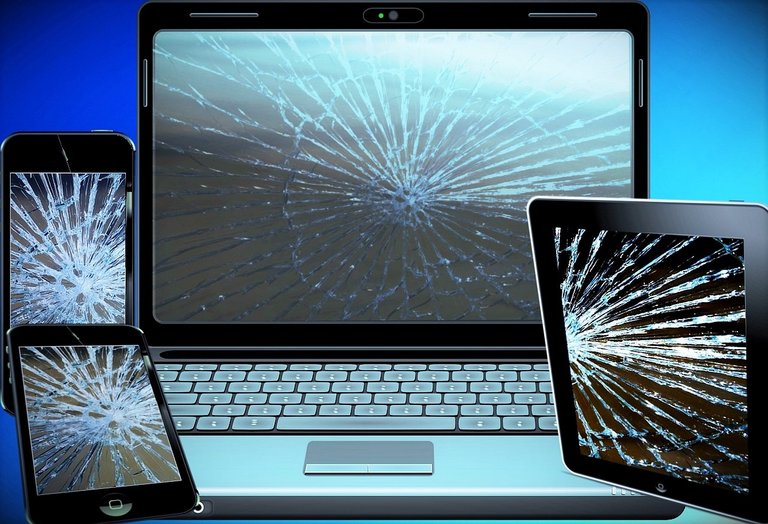
My notebook got bad, broke down, and this is normal, unfortunately. Most devices don’t survive more than 2-4 years without a service station, workshop, spare parts, renovations. The worse thing is, my machine can’t be repaired. But the worst, I have some unique data on it, mostly photos. Thousands of them. (Still trying to recover them.)
My fault, I broke my own rule: make a secure copy of everything. (Except movies or series, they occupy too much storage.) I made this many years, and didn’t need to use the secure copies, for 12 or 13 years. So, I got lazy and skipped to archive first my music. Later, my photos. That’s the problem. Don’t make the same mistake!
You can back up entire phones
How to archive? Let’s begin with our phones. On Android, you can back up all your contacts, applications, other data on Google’s servers. In fact, all your phone. I don’t like Google very much and I’m trying to make myself independent of it, but this is a useful service. You can save your photos for free and without limitations in Google Photos, but also in other systems (Microsoft Onedrive and other cloud services).
Your desktop computer or notebook is another story, because it has mostly much more, dozens or hundreds of gigabytes of data. The easiest solution is buying an external hard disk – the prices begin by 50-100 USD – and make regular backups on it. The problem is when your laptop and your hard disk are stolen together or perish together in fire, water. You need to store your backup far away from your computer (in mom’s?) to prevent this, or you can use an online service.
Store them online
The prices and storage amounts of this online services are very different. For some people Google Drive can be enough. (15 Gigabyte, but all together with other Google services like Gmail or your phone backup. Google Photos, fortunately, not included, excepted if you want to store very high density pictures and videos.) You can use now Hubic, it’s comfortable and offers 25 Gigabytes for free. I have also 50 GB by Mega but lately, I think, they offer only 15 GB on longer term. (I also tried Degoo – 100 GB for free – but it has some disadvantages I can’t tolerate.)
If you are storing your blog posts, texts, spreadsheets, and only some thousands of photos, this storage services can be enough in its free version. I repeat: if you use Android phone, you can store your photos and videos in Google Photos for free. If you are making something more storage-intensive content, maybe you need to buy extra storage. For example, photo manipulating material – Gimp or Photoshop files – can easily exceed 100-200 megabytes, or much more, depending on the size of the original photos, the number of layers etc. Video editing? Much more, I suppose.
Don’t pay ransom
There is another danger you may have heard of: ransomware. This is a virus silently encrypting your data and “block the access to it unless a ransom is paid”. (Mostly in cryptos. But sometimes you never get your data back, not even if you pay.) The danger is, you are making your regular backups, and the backup will be also encrypted. So I recommend a double protection: some occasional backups on a removable hard drive (weekly, perhaps), and regular online backups (every day). If the virus encrypts your data, then the hard drive can stay uninfected.
There are a lot of other security concerns and precaution methods. For example how to store the storage keys (passwords or recovery data to online storage), if and how to encrypt your hard disk (if it contains confidential information). And, of course, very important, the storage method of your cryptocurrency-keys.
Please answer my poll about this here
(Cover photo: Pixabay.com)
What is the status of the hard drive in the laptop? It's completely dead and won't spin up? It's an old platter one, right? Depending on how valuable the data is to you, it is probably recoverable. There are some tricks you can use to "unstick" a platter drive too.
In the past I lost 10 years of my data. Now I keep everything in three places at once at all times. At least one of those places should be online. People have many choices to choose from too. You can use Google Drive, Dropbox, Amazon, or any number of other services. They are relatively cheap, and backing up to them is simple to setup.
I'm a private investigator, and most people in my line of work use Dropbox for its encryption. Also, for $60 a month and a business account, you get unlimited data space. Unlimited!!! For a home NAS, I recommend the Synology brand. It has hardware encryption built into it, and it will automatically sync with Google, Amazon, or Dropbox both or only one way.
Thank you for your long comment.
"the status of the hard drive in the laptop" - the motherboard is dead, the drive is encrypted and sitting in a USB box now. But the encryption program can't recognize it in other computer... If I don't find the solution I will contact a professional.
One option then would be to find the same model laptop, and swap the hard drives. Then you should, in theory, get the same decrypt prompts you need to see to access the files.
I read this somewhere on the internet, that data once copied to any storage can not be fully erased. Am I correct?
Posted using Partiko Android
There are software to override this data again and again, and after some new writings data can't be recovered. Ex: File shredder from Glary utilities
http://feedback.glarysoft.com/knowledgebase/articles/423548-file-shredder
In other case, if you want to recover data, the question is: how much are you willing to spend for good experts?